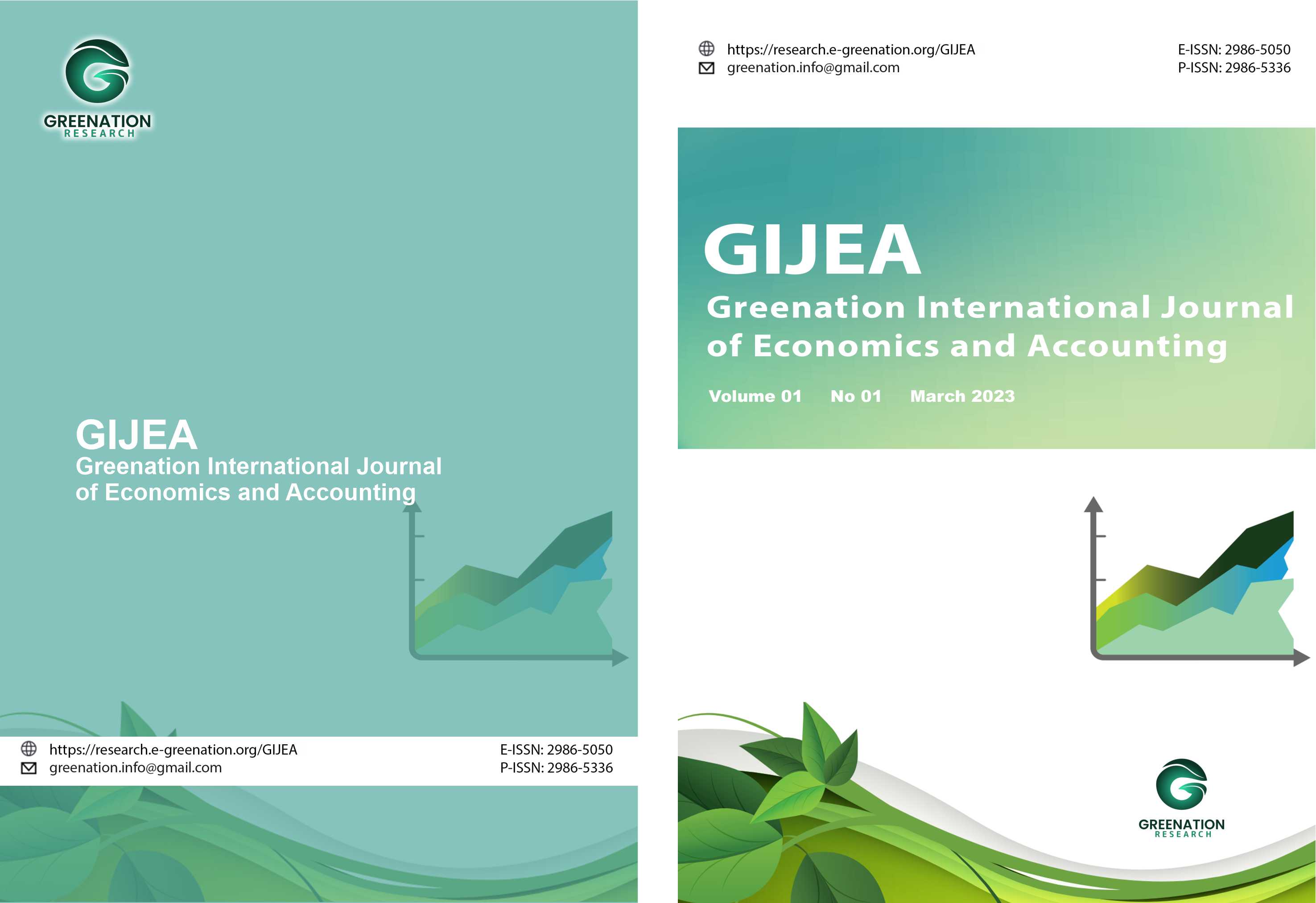Marketplace Platform Providers as Income Tax Collectors: Proposal For Indonesia
DOI:
https://doi.org/10.38035/gijea.v3i1.368Keywords:
Withholding Tax, Income Tax, Marketplace Platform, OECD (2015)Abstract
This study proposes a policy to appoint marketplace platform providers as income tax (PPh) withholding agents. The proposed policy is designed and evaluated based on the OECD (2015) principles: Neutrality, Efficiency, Certainty & Simplicity, Effectiveness & Fairness, Flexibility, and Equity. The research uses a descriptive qualitative method with a case study approach. Data was collected through interviews and literature review. Interviewees included officials from the Directorate General of Taxes (DJP), the Fiscal Policy Agency (BKF), marketplace platform providers, and merchants.The results show that appointing marketplace platforms as income tax withholding agents reduces administrative and compliance costs for merchants, simplifies tax obligations, prevents calculation and payment errors, and increases taxpayer compliance. The policy is relevant to the current digital economy. Nevertheless, implementing the policy for transactions outside of marketplace platforms remains a challenge. Additionally, the policy needs to align with Government Regulation (PP) No. 55 of 2022 is essential to maintain fairness. Overall, the policy meets the OECD (2015) principles of Efficiency, Certainty & Simplicity, Effectiveness & Fairness, Flexibility, and Equity. It does not yet fulfill the principle of Neutrality.
References
Fachrunissa, M. (2015). Analisis Pengawasan Pajak Atas Transaksi E- Commerce Online Retail: Studi Komparasi Indonesia Dan Filipina.
Fitriandi, P. (2020). Pemajakan Atas Transaksi Melalui Online Marketplace. Jurnal Pajak Indonesia (Indonesian Tax Review), 4(1), 14–20. https://doi.org/10.31092/jpi.v4i1.824
Fonoa. (2023, Maret 16). Mexico VAT on Digital Services. Fonoa. https://www.fonoa.com/countries/mexico/tax-on-digital-services
Goodstats. (2023, Desember 1). Daftar E-Commerce dengan Nilai Transaksi Terbesar di Indonesia. https://goodstats.id/infographic/daftar-e-commerce-dengan-nilai-transaksi-terbesar-di-indonesia-M20kO
Hama, A. (2021). Analysis Of Tax Payment Compliance On E-Commerce Transaction In Surabaya. Journal of Management, 12(1), 609–620.
Hendo, N. F., & Marfiana, A. (2024). Dampak Penunjukan Pemungut Pajak Pertambahan Nilai Perdagangan Melalui Sistem Elektronik Terhadap Kepatuhan Perpajakan Di Indonesia. Jurnalku, 4(3), 260–274. https://doi.org/10.54957/jurnalku.v4i3.898
Heriyanto, H. (2018). Thematic Analysis sebagai Metode Menganalisa Data untuk Penelitian Kualitatif. Anuva, 2(3), 317. https://doi.org/10.14710/anuva.2.3.317-324
International Trade Administration of USA. (2023, November 5). Mexico—Internet and Digital Economy. International Trade Administration of USA. https://www.trade.gov/country-commercial-guides/mexico-internet-and-digital-economy
Kementerian Perdagangan. (2021, Agustus 25). Raker Pembahasan RUU Pengesahan AAEC. Kementerian Perdagangan. https://www.kemendag.go.id/index.php/berita/foto/raker-pembahasan-ruu-pengesahan-aaec
Kementerian Perdagangan. (2024, Januari 5). Kemendag Ramal Transaksi E-Commerce di RI Tembus Rp533 Triliun. Kementerian Perdagangan. https://www.kemendag.go.id/berita/pojok-media/kemendag-ramal-transaksi-e-commerce-di-ri-tembus-rp533-triliun#:~:text=commerce.%2FDok%20Freepik-,Bisnis.com%2C%20JAKARTA%20%2D%20Kementerian%20Perdagangan%20(Kemendag)%20memperkirakan,sebelumnya%20yang%20tercatat%20Rp476%20triliun
KPMG. (2024a). CBDT issues another set of guidelines for the deduction of tax at source on e-commerce transactions under Section 194-O of the Income-tax Act. https://www.in.kpmg.com/taxflashnews/KPMG-Flash-News-CBDT-guidelines-for-the-deduction-of-TDS-under-Section-194-O-of-the-Act.pdf
KPMG. (2024b, Juni 12). Taxation of the digitalized economy—Developments Summary. KPMG. https://kpmg.com/us/en/articles/2023/tracking-digital-services-taxes-developments.html
Kuncoro, A. (2021). Kepatuhan Pajak dan Reputasi Perusahaan. Jurnal Pajak Indonesia, 5(2), 186–191
Kusumawati, M. P., Hamrany, A. K., & Rahman, A. N. (2021). Kepatuhan Wajib Pajak Penyedia Platform Marketplace E-Commerce Sebagai Pemungut Pajak Pertambahan Nilai Perdagangan Melalui Sistem Elektronik. Kosmik Hukum, 21(3), 203. https://doi.org/10.30595/kosmikhukum.v21i3.9175
Nugraha, V. S. (2020). Pengaruh Mekanisme Pembentukan-Kepercayaan Daring terhadap Kepercayaan dan Repurchase Intentions pada Marketplace Tokopedia.
Nugroho, H. D. (2023). Toward Seamless Taxation Through a Split Payment Mechanism on the Marketplace and Quick Response (QR) Payment System. Scientax Jurnal Kajian Ilmiah Perpajakan Indonesia, 5(1), 74–86.
Nurhayati, H., & Wolff. (2023, November). Indonesia: GMV e-commerce market 2030 | Statista. Statista. https://www.statista.com/statistics/1117608/indonesia-gmv-e-commerce-market/
OECD. (2011). OECD Guide to Measuring the Information Society 2011. OECD. https://doi.org/10.1787/9789264113541-en
OECD. (2014). Tax Compliance by Design: Achieving Improved SME Tax Compliance by Adopting a System Perspective. OECD. https://doi.org/10.1787/9789264223219-en
OECD. (2015). Addressing the Tax Challenges of the Digital Economy, Action 1—2015 Final Report. OECD. https://doi.org/10.1787/9789264241046-en
Peraturan Menteri Keuangan Nomor 58/PMK.03/2022 tentang Penunjukan Pihak Lain sebagai Pemungut Pajak dan Tata Cara Pemungutan, Penyetoran, dan/atau Pelaporan Pajak yang Dipungut oleh Pihak Lain atas Transaksi Pengadaan Barang dan/atau Jasa melalui Sistem Informasi Pengadaan Pemerintah.
Peraturan Menteri Keuangan Nomor 60/PMK.03/2022 tentang Tata Cara Penunjukan Pemungut, Pemungutan, Penyetoran, dan Pelaporan Pajak Pertambahan Nilai atas Pemanfaatan Barang Kena Pajak Tidak Berwujud dan/atau Jasa Kena Pajak dari Luar Daerah Pabean di Dalam Daerah Pabean melalui Perdagangan Melalui Sistem Elektronik.
Peraturan Pemerintah Nomor 55 Tahun 2022 tentang Penyesuaian Pengaturan di Bidang Pajak Penghasilan.
Ramadhanti, S., & Ismail, T. (2023). The Imposition of Digital Taxes in E-commerce. 6(1).
Shimizu, M. (2021). Effects of tax payment systems on tax compliance: Comparing the withholding system with the tax declaration system. Journal of Behavioral Economics for Policy, 5(2), 95–102.
Surat Edaran Direktur Jenderal Pajak Nomor SE-06/PJ/2015 tentang Pemotongan Dan/Atau Pemungutan Pajak Penghasilan Atas Transaksi E-Commerce.
Theresia, A. C. (2019). Analisis Sistem Pengawasan Pemungutan Dan/Atau Pemotongan Pajak Penghasilan Atas Transaksi E- Commerce Dalam Rangka Optimalisasi Penerimaan Pajak Di Indonesia.
Undang-Undang Republik Indonesia Nomor 6 Tahun 1983 Tentang Ketentuan Umum dan Tata Cara Perpajakan Sebagaimana Telah Beberapa Kali Diubah dengan Undang-Undang Republik Indonesia Nomor 7 Tahun 2021 Tentang Harmonisasi Peraturan Perpajakan.
Zulma, G. W. M., & Hizazi, A. (2020). The Relevance of E-Commerce Tax Application in Indonesia: Based on the Perspective of Taxation Expert. Organum: Jurnal Saintifik Manajemen Dan Akuntansi, 3(2), 94–108. https://doi.org/10.35138/organum.v3i2.103
Downloads
Published
How to Cite
Issue
Section
License
Copyright (c) 2025 Rizki Desima Renova Siahaan, Yulianti Abbas

This work is licensed under a Creative Commons Attribution 4.0 International License.
Copyright :
Authors who publish their manuscripts in this journal agree to the following conditions:
- Copyright in each article belongs to the author.
- The author acknowledges that the GIJEA has the right to be the first to publish under a Creative Commons Attribution 4.0 International license (Attribution 4.0 International CC BY 4.0).
- Authors can submit articles separately, arrange the non-exclusive distribution of manuscripts that have been published in this journal to other versions (for example, sent to the author's institutional repository, publication in a book, etc.), by acknowledging that the manuscript has been published for the first time at GIJEA.
























